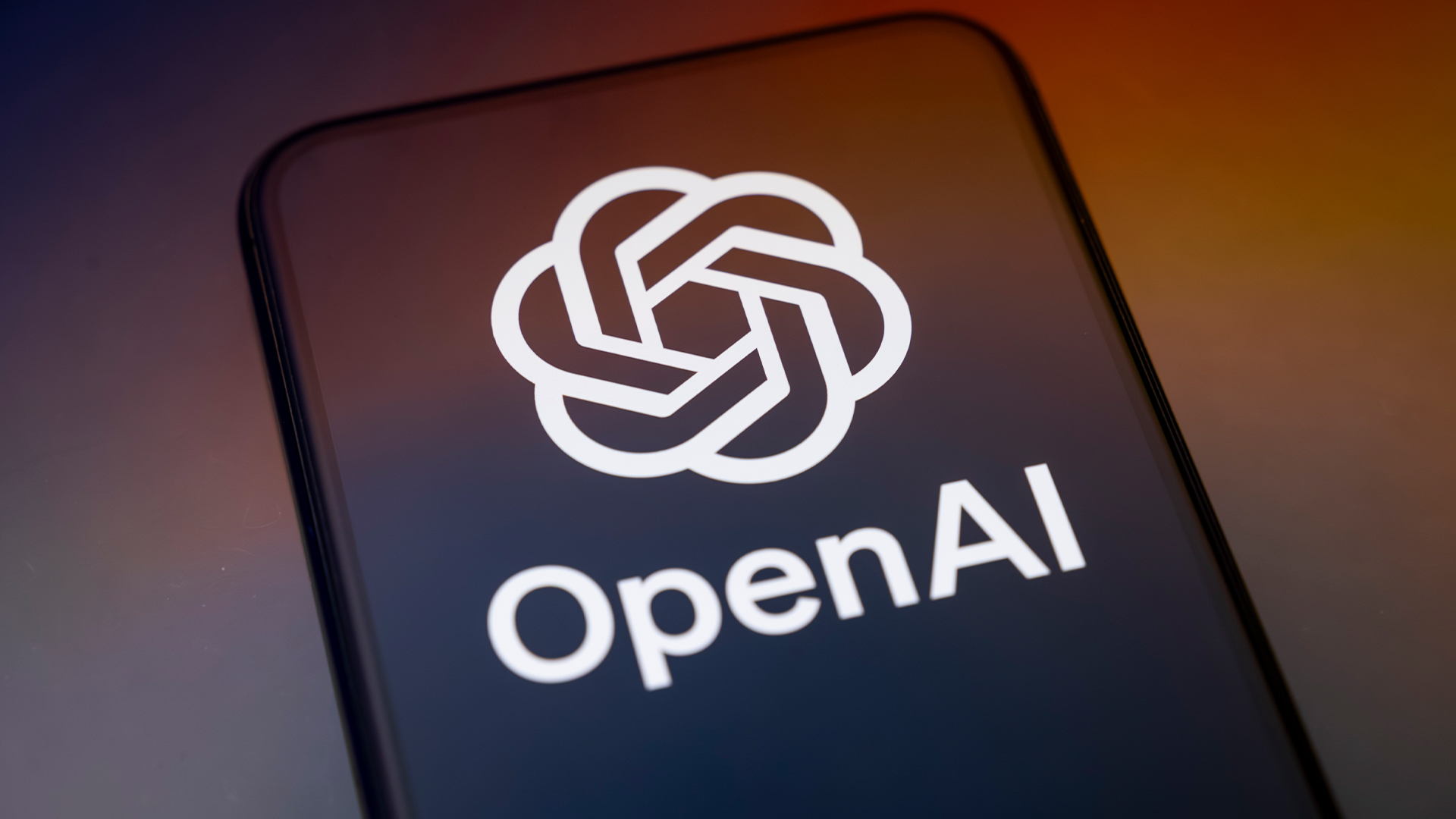A threat to Google’s dominance? The AI browser wars have begun – here are the top contenders vying for the crown
Perplexity has unveiled its Comet browser while OpenAI is reportedly planning to follow suit


Sign up today and you will receive a free copy of our Future Focus 2025 report - the leading guidance on AI, cybersecurity and other IT challenges as per 700+ senior executives
You are now subscribed
Your newsletter sign-up was successful
Look out Google, the AI browser wars are here. Perplexity has unveiled its own browser with AI search while OpenAI reportedly plans to do the same.
The moves spark a fresh front in the battle for AI dominance, directly targeting Google's Chrome and its money-spinning, data-collecting Search.
Given Google’s ad business makes up the bulk of the company's revenue, the launch of new competitors could pose a serious threat long-term.
Perplexity's CEO Aravind Srinivas has been candid about the company’s plans to challenge in the search domain, having previously courted the tech giant on this front.
"I reached out to Chrome to offer Perplexity as a default search engine option a long time ago," he posted on X.
"They refused. Hence we decided to build [the] Perplexity Comet browser."
Google is facing stiff competition
Chrome commands more than two-thirds of the global browser market, according to StatCounter, and has dominated the market in terms of users for more than a decade, while Google Search has 90% of searches globally.
Sign up today and you will receive a free copy of our Future Focus 2025 report - the leading guidance on AI, cybersecurity and other IT challenges as per 700+ senior executives
The advent of generative AI and the rise of OpenAI's ChatGPT has threatened search traffic, though Google-owner Alphabet's revenue in the advertising and search business climbed 8.5% on year last quarter.
Google has responded with its own AI-powered search options, AI Overviews. But now rivals are coming for the dominant browser.
Perplexity’s own browser, called Comet, is immediately available for download to top-tier subscribers, while OpenAI is reportedly set to release its own within weeks. AI browsers have also already been unveiled by Brave and the Browser Company.
Last year, the US Department of Justice said one remedy to an anticompetition ruling against Google related to search would be for the company to sell Chrome, though the judge in the case has softened that stance amid rising competition from AI.
"Do you think someone is going to come off the sidelines and build a new general search engine in light of what we are seeing," US District Judge Amit Mehta suggested in May.
The answer to that appears to be a resounding yes.
Perplexity Comet browser
Perplexity Comet naturally doesn't use Google Search, instead defaulting to Perplexity's own AI search engine, which generates summaries of results rather than links. The browser also features a new AI agent called Comet Assistant that's embedded directly in the browser.
That said, Comet is based on the Chromium browser platform.
"Comet is a Chromium-based browser that integrates advanced AI capabilities powered by Perplexity," the company notes in help documents. As such, it includes the usual browser functions — bookmarks, page translation, support for Chrome extensions, the company said, as well as AI-powered tools.
Those include the search tool, which will be personalized by analyzing browser history, a summarize button to "condense" lengthy content, an "ask button" to search for information in a web page, and a connector to Gmail for queries about email and calendar entries.
Similarly, browser commands use natural language and voice commands to help manage tabs and do other tasks. Plus, AdBlock will be built in.
"Ask Comet to book a meeting or send an email, based on something you saw. Ask Comet to buy something you forgot. Ask Comet to brief you for your day," the company said in a blog post.
"With Comet, you don't search for information — you think out loud, and Comet executes complete workflows while keeping perfect context. Research becomes conversation. Analysis becomes natural. Annoying tasks evaporate. The internet becomes an extension of your mind."
Comet is available for users on Perplexity's Max plan, which costs $200 a month; a waitlist is available for other users, and it will be available for free eventually, the company said in its FAQs.
Comet currently works on Mac and Windows, with further support for other OSes planned in the next few months.
OpenAI browser planned
OpenAI is set to release its own browser in the next few weeks, according to a report from Reuters that cites three sources, though OpenAI didn't comment on the report and has yet to get back to ITPro.
The report suggested that OpenAI aims to keep users inside a ChatGPT-style interface, rather than click through to websites — a decision that could hit publishers hard and spark further lawsuits about copyright.
This is likely to make use of natural language interactions as ChatGPT does, but could also be an ideal place to integrate AI agents to take action on behalf of users on websites, the report noted.
Reuters noted an OpenAI executive said earlier this year that the company would like to buy Chrome if Google is forced to sell it as part of antitrust regulatory action, and has hired former Chrome developers.
AI browsers raise privacy concerns
AI companies crowding into search raises concerns about the increased energy use versus standard search, as all of these tasks will require more processing and chew through more power.
Crucially, there are lingering concerns about data protection and privacy. Jake Moore, global cyber security advisor at ESET noted that AI-powered harvesting is an entirely different dynamic compared to traditional search engines.
“Many people have rightly been concerned with the amount of personal data scooped up by OpenAI in its processing and algorithm tweaking in recent months,” he told ITPro.
Moore noted, however, that consumers are already accustomed to Google collecting large volumes of personal data to fuel search curation techniques.
“We shouldn’t forget the gigantic amount of personal data Google collected," he added. “From real-time location data to internet searches, Google has been monitoring their users’ every move for many years and has been analyzing it for advertising purposes, which is the foundation of their business model.”
Despite these concerns, Moore welcomed the competition in this space, noting that new options for consumers will create a “growing competitive world for user data”.
With this in mind, informing consumers about the implications of using AI-powered search engines will be crucial.
“Profiling and data sharing may still be at the heart of the engine behind the browser itself so it is important that users fully understand the privacy settings on offer and that they are aware they may be trading personal browsing data for convenience.”
Make sure to follow ITPro on Google News to keep tabs on all our latest news, analysis, and reviews.
MORE FROM ITPRO
Freelance journalist Nicole Kobie first started writing for ITPro in 2007, with bylines in New Scientist, Wired, PC Pro and many more.
Nicole the author of a book about the history of technology, The Long History of the Future.
-
 Microsoft hails advances in glass data storage
Microsoft hails advances in glass data storageNews Project Silica uses lasers to encode data into borosilicate glass, where it stays stable for thousands of years
-
 Using AI to generate passwords is a terrible idea, experts warn
Using AI to generate passwords is a terrible idea, experts warnNews Researchers have warned the use of AI-generated passwords puts users and businesses at risk
-
 Google says hacker groups are using Gemini to augment attacks – and companies are even ‘stealing’ its models
Google says hacker groups are using Gemini to augment attacks – and companies are even ‘stealing’ its modelsNews Google Threat Intelligence Group has shut down repeated attempts to misuse the Gemini model family
-
 ‘The fastest adoption of any model in our history’: Sundar Pichai hails AI gains as Google Cloud growth, Gemini popularity surges
‘The fastest adoption of any model in our history’: Sundar Pichai hails AI gains as Google Cloud growth, Gemini popularity surgesNews The company’s cloud unit beat Wall Street expectations as it continues to play a key role in driving AI adoption
-
 OpenAI's Codex app is now available on macOS – and it’s free for some ChatGPT users for a limited time
OpenAI's Codex app is now available on macOS – and it’s free for some ChatGPT users for a limited timeNews OpenAI has rolled out the macOS app to help developers make more use of Codex in their work
-
 Amazon’s rumored OpenAI investment points to a “lack of confidence” in Nova model range
Amazon’s rumored OpenAI investment points to a “lack of confidence” in Nova model rangeNews The hyperscaler is among a number of firms targeting investment in the company
-
 OpenAI admits 'losing access to GPT‑4o will feel frustrating' for users – the company is pushing ahead with retirement plans anway
OpenAI admits 'losing access to GPT‑4o will feel frustrating' for users – the company is pushing ahead with retirement plans anwayNews OpenAI has confirmed plans to retire its popular GPT-4o model in February, citing increased uptake of its newer GPT-5 model range.
-
 ‘In the model race, it still trails’: Meta’s huge AI spending plans show it’s struggling to keep pace with OpenAI and Google – Mark Zuckerberg thinks the launch of agents that ‘really work’ will be the key
‘In the model race, it still trails’: Meta’s huge AI spending plans show it’s struggling to keep pace with OpenAI and Google – Mark Zuckerberg thinks the launch of agents that ‘really work’ will be the keyNews Meta CEO Mark Zuckerberg promises new models this year "will be good" as the tech giant looks to catch up in the AI race
-
 DeepSeek rocked Silicon Valley in January 2025 – one year on it looks set to shake things up again with a powerful new model release
DeepSeek rocked Silicon Valley in January 2025 – one year on it looks set to shake things up again with a powerful new model releaseAnalysis The Chinese AI company sent Silicon Valley into meltdown last year and it could rock the boat again with an upcoming model
-
 Google’s Apple deal is a major seal of approval for Gemini – and a sure sign it's beginning to pull ahead of OpenAI in the AI race
Google’s Apple deal is a major seal of approval for Gemini – and a sure sign it's beginning to pull ahead of OpenAI in the AI raceAnalysis Apple opting for Google's models to underpin Siri and Apple Intelligence is a major seal of approval for the tech giant's Gemini range – and a sure sign it's pulling ahead in the AI race.
